Peking Opera is often referred to as the quintessence of Chinese culture and art. It is characterised by colourful costumes and striking character-identifying makeup, as well as acrobatic combats and dances, all combined seamlessly into thrilling performance art.
Peking Opera comes to Pao School
Recently at the High School, 16 IB Theatre students had the opportunity to learn Peking Opera skills in special workshops from masters of the art form. The sessions were led by Ms. Xu Jiali, from Shanghai Theatre Academy, and Mr. Gao Ying, from the Shanghai Opera School, who came to campus to lead full-day master classes for the students. During the sessions, the two Peking Opera teachers gave students practical training in body movements, emotional expression, and how to use the stage space.
At the beginning of the activity, a student from the Shanghai Opera School put on a spectacular performance. In addition, in recognition of the different types of Peking Opera roles, the students were divided into two groups to learn the skills associated with gender-specific characters.
“The Pao School students who participated in the course showed great respect and curiosity for traditional Chinese art. For Chinese students, it is essential to understand the national art of Peking Opera as whatever their future path would be, knowing the art and culture of their home country can help them build a strong cultural identity. Peking Opera also has unique advantages in training drama students, because it teaches them important skills, such as singing, reciting, acting, and combating in traditional performances.”
—— Xu Jiali, Shanghai Theatre Academy
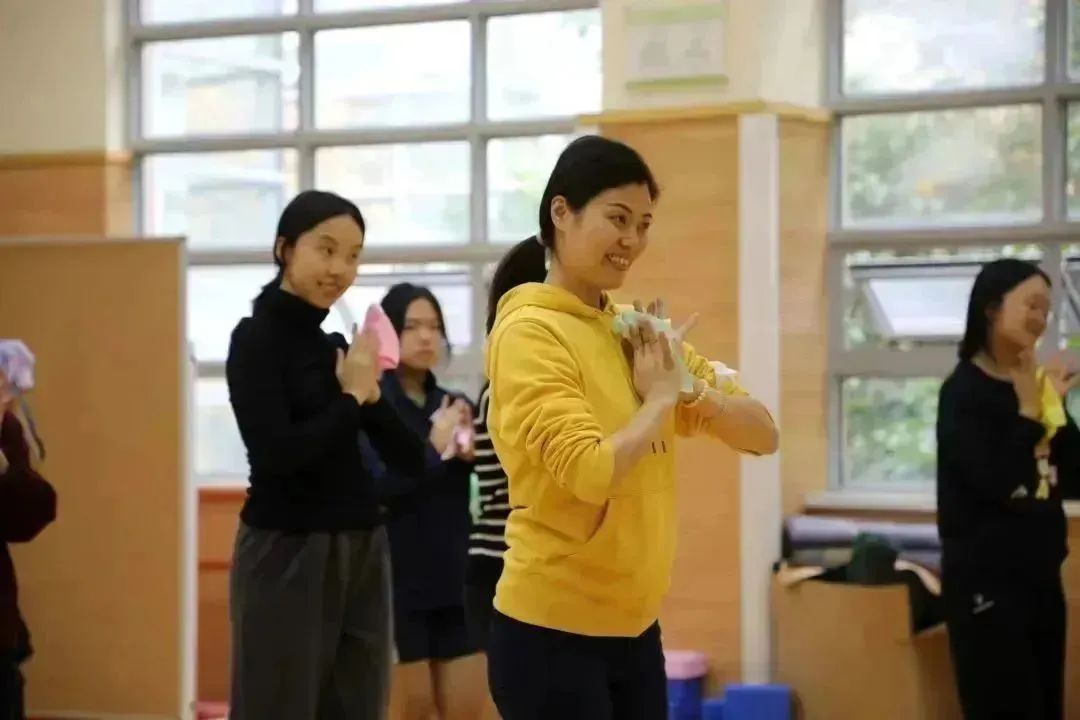
The two teachers shared the many rich elements of Peking Opera with the students, covering its origin and ascension to unique status in both the Chinese and international arts communities. In the classroom, the teachers explained in detail the four main roles in Peking Opera: Sheng (male), Dan (female), Jing (painted faces), and Chou (male clowns). These roles feature specific characteristics which call on age and gender, as well as social status, and are artificially exaggerated by makeup, costume, and gestures.
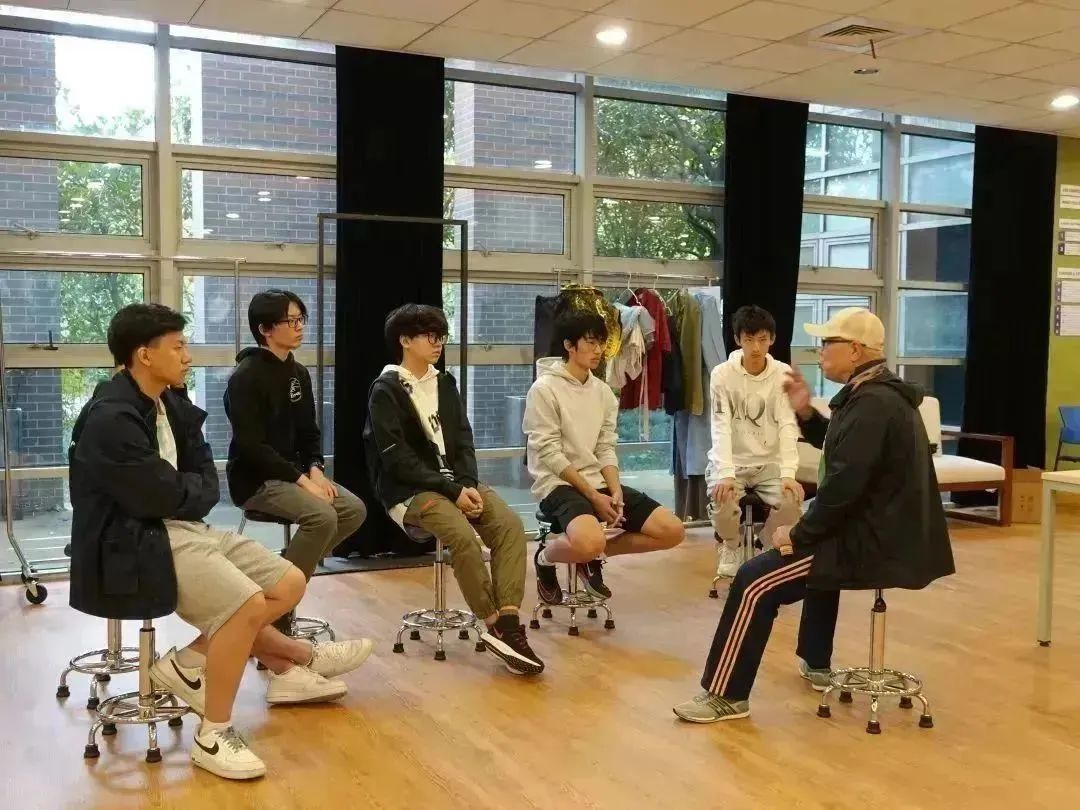
Teacher Gao told the male students, “Since the Peking Opera stage is static, it is up to the actors to make it come alive with the four skills and five methods, interpreting the mountains, rivers, birds and animals.” In the session, Teacher Gao taught the boys how to perform part of the play “Li Kui Descends the Mountain.” From their body language to their recitation of lines, the boys vividly embodied the role of Li Kui.
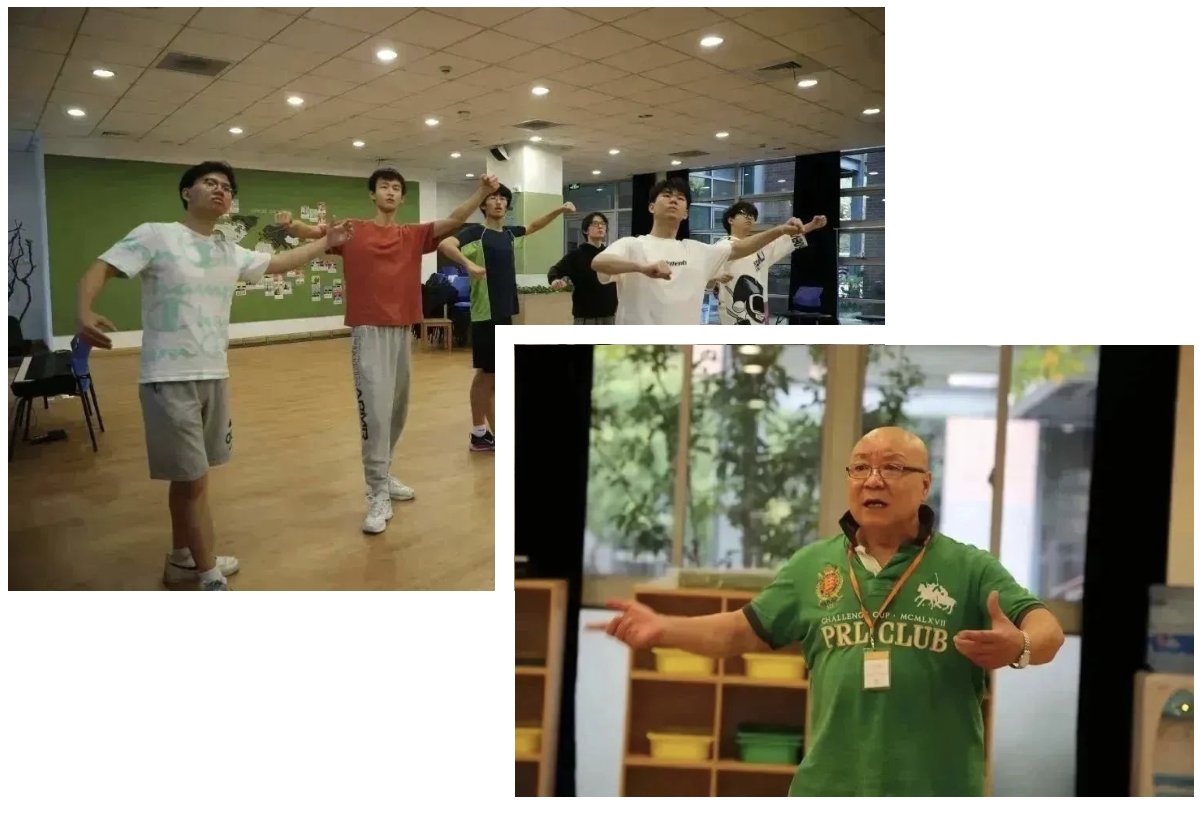
Teacher Xu, meanwhile, explained to the female students the differences between the Qing Yi and Hua Dan roles. A Qing Yi actress usually portrays a lady who represents the Chinese ideal of a beautiful woman, with a good and sympathetic character, a quiet and gentle disposition, and grace in her movements. In contrast, a Hua Dan actress usually plays a woman of lower social standing than the Qing Yi, often coy and coquettish.
Teacher Xu explained how the Qing Yi and Hua Dan roles use body language to express different emotions, including tension, happiness, anxiety, and excitement. Ms. Xu says, “In a dramatic performance, the performers express emotions with both their facial expressions and body language.”
Petunia (Y12) says that one of her favourite aspects of studying Peking Opera is how it has helped her learn how to use body language to display emotion, "This is complementary to IB Theatre, in which we usually focus on how to deliver our lines; whereas, Peking Opera focuses on how to express emotion with physical movements.”
“Our Peking Opera classes have allowed us to see how the art form relates to our everyday lives and understand its storytelling structure. The sessions allowed us to get close to the action and take a deeper look into what it is really like. It made me want to learn more about Peking Opera.”
—— Petunia (Year 12)
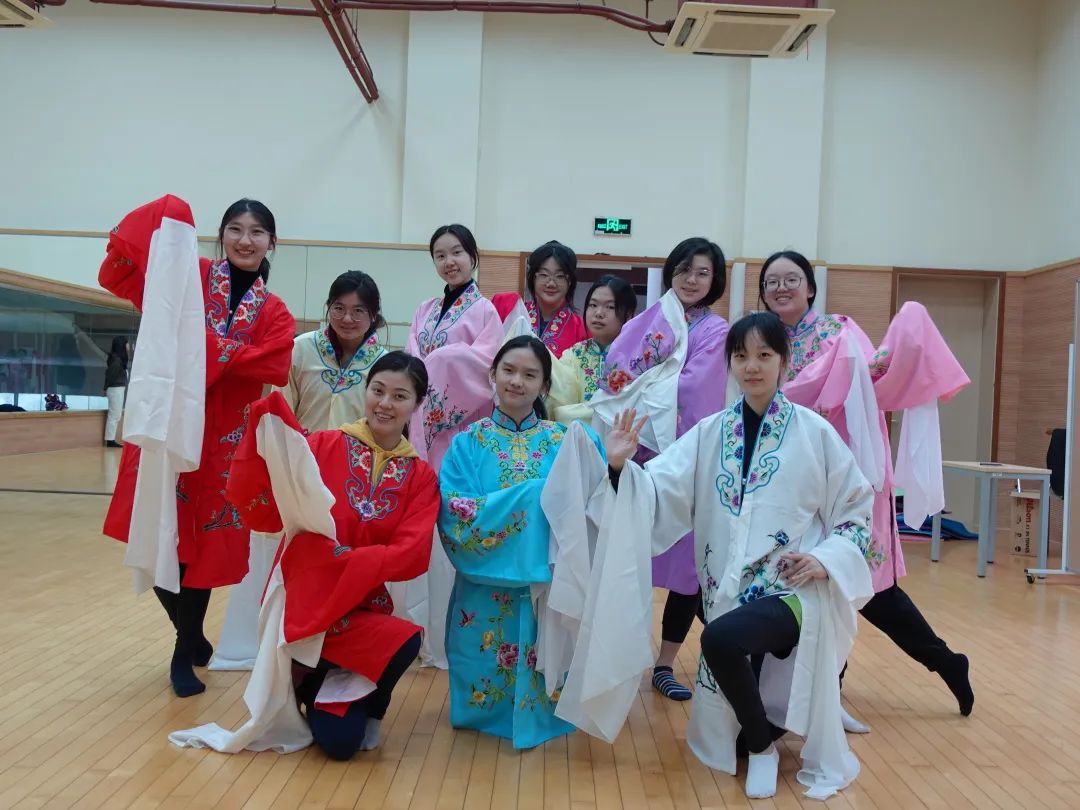
Teacher Xu also guided the students to get into costume and to try to use water sleeves - white silk extensions to the cuff of garment sleeves – to portray a gentle character. Afterwards, the girls tried their hand at performing a scene from the play “Picking Up the Jade Bracelet” in which Sun Yujiao feeds the chickens. The girls rolled their eyes, raised their hands, and lowered their hands, to play the Huadan role just right.
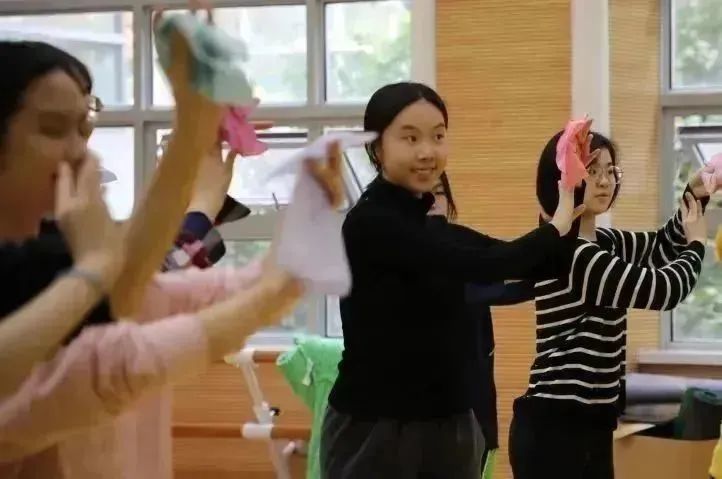
IB Theatre at Pao School
Pao School officially launched the IB Theatre programme in the 2018-19 academic year. IB Theatre is a diverse course, welcoming students without prior study of relevant course content. The theatre course cultivates the comprehensive skills students need for theatre performance and creation, whilst also enabling them to better understand the different roles of the theatre, such as creators, designers, performers, and directors.
The IB Theatre course is divided into both internal and external assessments, which develop students’ performance skills and also their academic understanding of drama. For higher level students, the work they must complete includes a collaborative original play, the creation of a director's notebook, a research report, and solo theatre piece.
In contrast to other IB subjects, students in IB Theatre focus on the concept of an “exploration journey” – both through individual and group work. This approach improves students’ analytical reasoning, critical thinking, and teamwork skills.
“Drama and Theatre teaches students the art of storytelling and that stories can change us, our outlook, our thoughts, our mood, and our opinions. Stories can teach us what it is to be human,” says Mr. van der Colff, explaining that students learn myriad skills in the class. The students not only learn to perform but to develop skills of analysis, synthesis, and evaluation through written projects. There is also a level of flexibility and creativity required, unlike in other subjects, as the students are not being assessed by the correctness of they what they produce – in this way, they must adapt to the freedom to follow their own path in how they respond to a project brief. The course also gives room for the cultivation of soft skills, such as collaboration, communication, and confidence. No matter the path the students choose to follow in the future, these skills will provide a strong foundation upon which to grow.
At the start of every drama lesson, the students spend around 10-15 minutes on focused skill-development practise. In order to cultivate a breadth of skills, there are about 20-30 different activities that the classes cycle through. For example, the students sometimes take part in a warm-up called “Shakespeare on the Run”, which was created by Canadian actor and acting teacher Matthew Godfrey. In the activity, the students recite Puck’s final speech for a Midsummer Night's Dream as they run, and also stop at various locations to recreate other scenes from Shakespeare, such as the balcony scene from Romeo and Juliet. The benefits of such training are three-fold: the students build up the stamina needed for the stage and learn to control their breath and voice. The activity also is a warm-up for creativity, kick starting the students’ imagination.
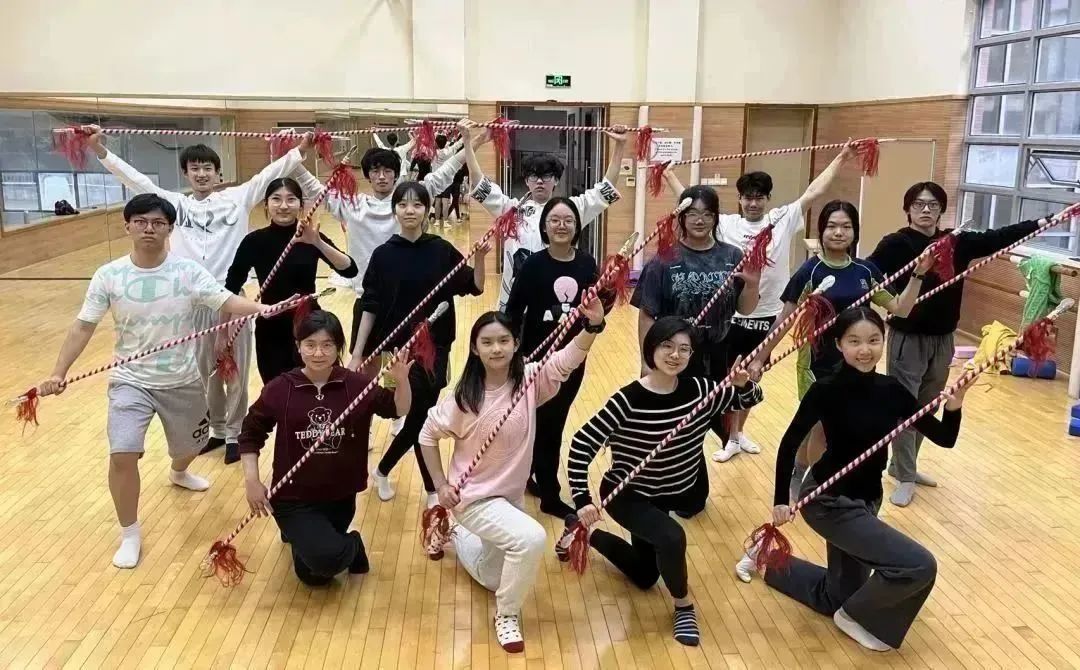
The Peking Opera study is an integral part of the Research Presentation assessment, which requires that students conduct an in-depth research project on a traditional cultural drama form. The students must also present their research to their classmates and the teacher in a hybrid presentation that combines both performance and a spoken presentation.
The Research Presentation process includes several stages: Inquiry, exploration, skill development, practice for the presentation, giving final presentation and a reflection piece on the project. The Peking Opera workshop is part of this larger project, which forms the requirements needed for the students’ IB Research Presentation. In Year 11, the students first do an introductory unit to prepare for the topic, a few workshops on exploring world theatre traditions, exploring conventions in these traditions, and how to approach performing for this tradition.
The Year 12 students start with the stage of inquiry, such as reading about the topic, to gain an understanding of the contextual background of the cultural art form. For example, at the beginning of the Peking Opera courses, Mr. Kobus van der Colff recommended students read a book written by Xu Chengbei, Peking Opera scholar, to help students get a good understanding of it. After reading it, the students were required to design a set of personal exploration plans, including the following aspects of theatre performances: sense of balance, sense of strength, control, and concentration. For example, during this phase, some girls practised how to express emotions with their eyes, and boys practised cloud hands and body lifting.
As their knowledge and physical skills grow, the students are then asked to prepare an individual performance showcasing their chosen tradition. Alongside acting, the students needed to keep track of and make decisions regarding important aspects of their performances such as preparing lighting and costuming. In addition, the students prepared a fifteen-minute presentation, covering topics such as what they have learned through the project – particularly impressive as the students show their ability to research and present complex ideas in, what is for most, their second language.
Drama at Pao School also extends beyond the classroom. To provide students with plenty of opportunities to refine their skills, the High School Drama Department also cooperates with the London Academy of Music and Dramatic Art (LAMDA) to provide co-curriculars. Further, the teachers oversee some additional co-curricular activities: the Pao Actors Ensemble, which serves as the High School’s drama club, and Chinese Drama, the Chinese drama club.
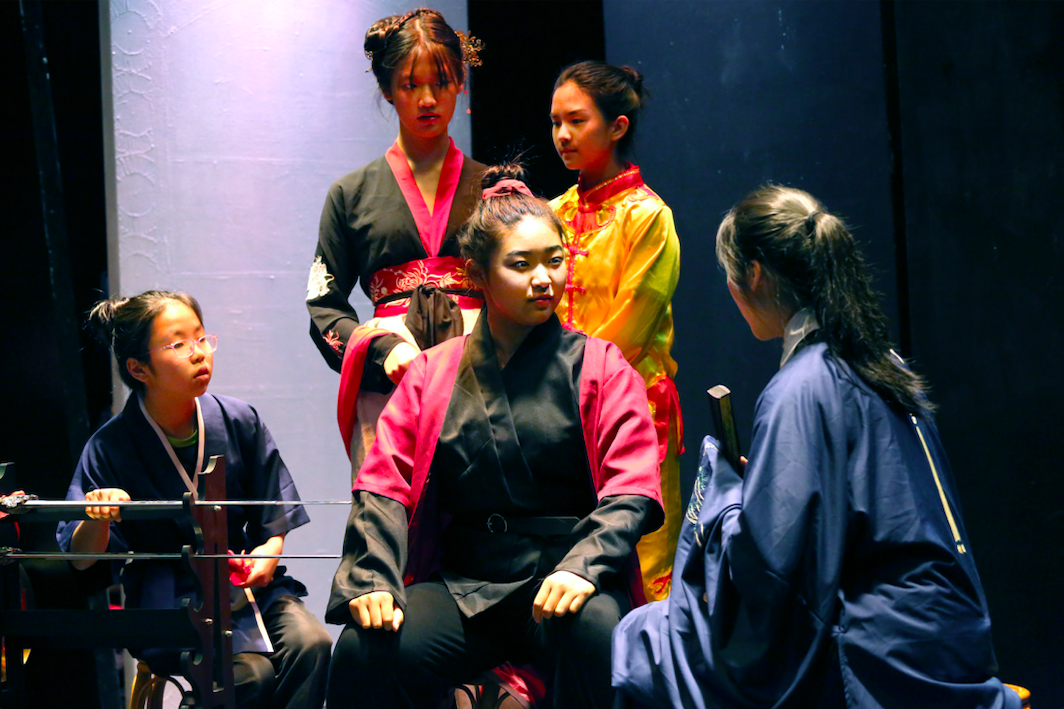
Student Drama Performance Judge Dee (2018)
“The Peking Opera workshops are a great way to incorporate local Chinese culture into the drama curriculum. We're so fortunate to be able to explore this world theatre tradition in so much depth in collaboration with the Shanghai Theatre Academy, it really is one of the cultural gems of China.”
——Kobus van der Colff,
Head of High School Drama